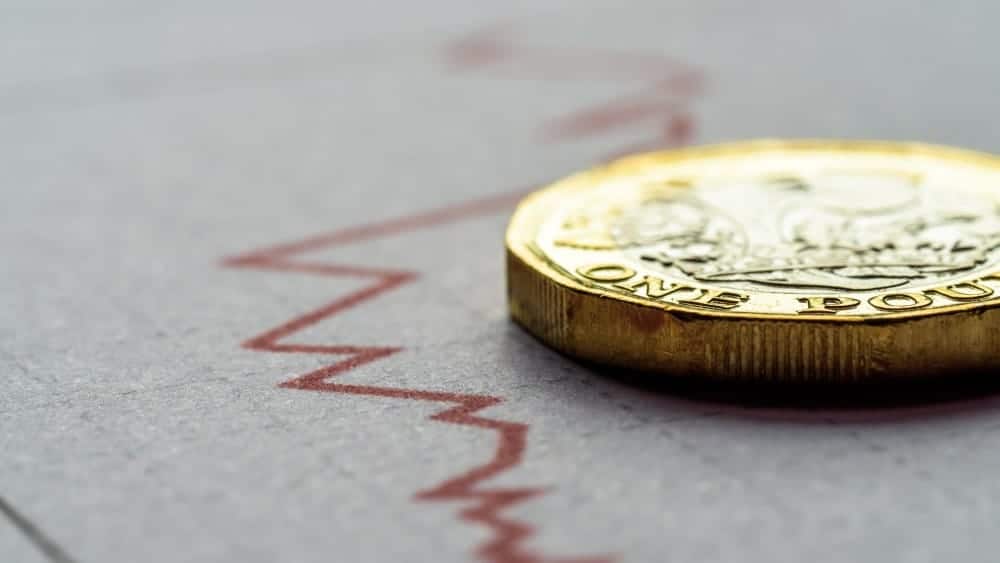The Consumer Prices Index reports that prices rose by 3.1% in the 12 months to September 2021, down from 3.2% in August. Yet while it may appear that the inflation rate is starting to cool, I believe further price rises may be just around the corner. Here’s why.
[top_pitch]
What is the Consumer Prices Index?
The Consumer Prices Index (CPI) from the Office for National Statistics (ONS) is the most widely reported measure of inflation.
The CPI is calculated by measuring price rises of a typical ‘basket of goods’ over a given period. This basket is reviewed every year and 17 items were added in 2021, including electric cars, hand hygiene gel and smartwatches.
As well as the CPI, the ONS reports on the ‘Consumer Prices Index including owner occupiers’ housing costs’ (CPIH). This is essentially the same as the CPI, though it also takes into account costs faced by homeowners.
For more on the CPI, see our article explaining how inflation is measured.
What does the new CPI inflation figure tell us?
The CPI rose by 3.1% in the 12 months to September 2021, down from 3.2% in August. On a monthly basis, the CPI rose by 0.3% in September 2021. This compares to a 0.4% rise seen in September last year.
Similarly, the CPIH rose by 2.9% in the 12 months to September 2021. This was down slightly from August’s 3% figure.
The ONS says that the largest upward contributor to September’s CPI inflation figure was higher transport costs. That’s because last month saw the emergence of the fuel crisis, which many believe is still ongoing. The ONS reports average petrol prices stood at 134.9 pence per litre in September 2021, compared with just 113.3 pence per litre 12 months ago.
Aside from transport, the CPI recorded price rises in clothing, recreation, culture, furniture and household goods in September.
In terms of the biggest downward contributor to the latest CPI inflation figure, the ONS says that restaurant and hotel costs are responsible.
That’s because last year’s temporary ‘eat out to help eat’ scheme had ended by September 2020. In contrast, the previous CPI rate had to compare restaurant prices from August 2021 and August 2020, when the scheme supported widespread 50% discounts on food and drink.
[middle_pitch]
Does this signal the end of rising inflation?
At first glance, a 0.1% reduction in the CPI from August to September may give the impression that inflation is slowing. However, anyone calling the end of inflation would be brave to do so.
Here are four big reasons why I think the end of rising inflation is a long way off.
1. Ongoing worker shortages
Job vacancies recently hit a 20-year high. Alongside this, the UK is experiencing a shortage of a number of key workers, most notably HGV drivers. Both of these factors will likely lead to higher wages to attract workers, which can place upward pressure on the inflation rate.
2. Accelerating petrol and energy costs
Aside from September’s CPI figure, recent reports suggest petrol and diesel costs are now at their highest levels in over nine years. This suggests the fuel crisis is far from over.
In addition, energy prices are also going through the roof, with one analyst predicting a further 33% rise in the cost of energy next year. The rising costs of these important commodities will almost certainly continue to place upward pressure on inflation.
3. The CPI may not be telling us the full story
Remember that the CPI is just one measure of inflation. The ONS’s less-popular Retail Price Index (RPI) suggests that inflation is running at 4.9% month on month. The RPI is different from the CPI as it doesn’t take into account rising costs of assets, such as house prices and stocks. For this reason, some argue it’s a more accurate way of measuring inflation.
4. Industry ‘real world’ fears
Aside from the ONS figures, industry is also reporting its own real-world experiences of rising inflation. According to the Food and Drink Federation, cafe, restaurant and pub prices are rising at 14-18% a year. The same organisation also suggests supermarket prices may soon follow suit.
How will the Bank of England react to the latest inflation figures?
The Bank of England (BoE) base rate, which can massively impact savings and mortgage rates, currently stands at an all-time low of just 0.1%.
In recent months, pressure has been mounting on the central bank to increase its base rate in order to cool inflation. However, its been reluctant to do this so far in 2021. This is perhaps due to the fact that hiking its base rate would impact the UK housing market and businesses that are in substantial debt.
As the latest CPI figure technically reveals that the rate of inflation has slowed, many fear the BoE will use this to justify keeping its base rate at its current rock-bottom level.
To learn more about the impact of rising inflation, see our latest personal finance articles.







